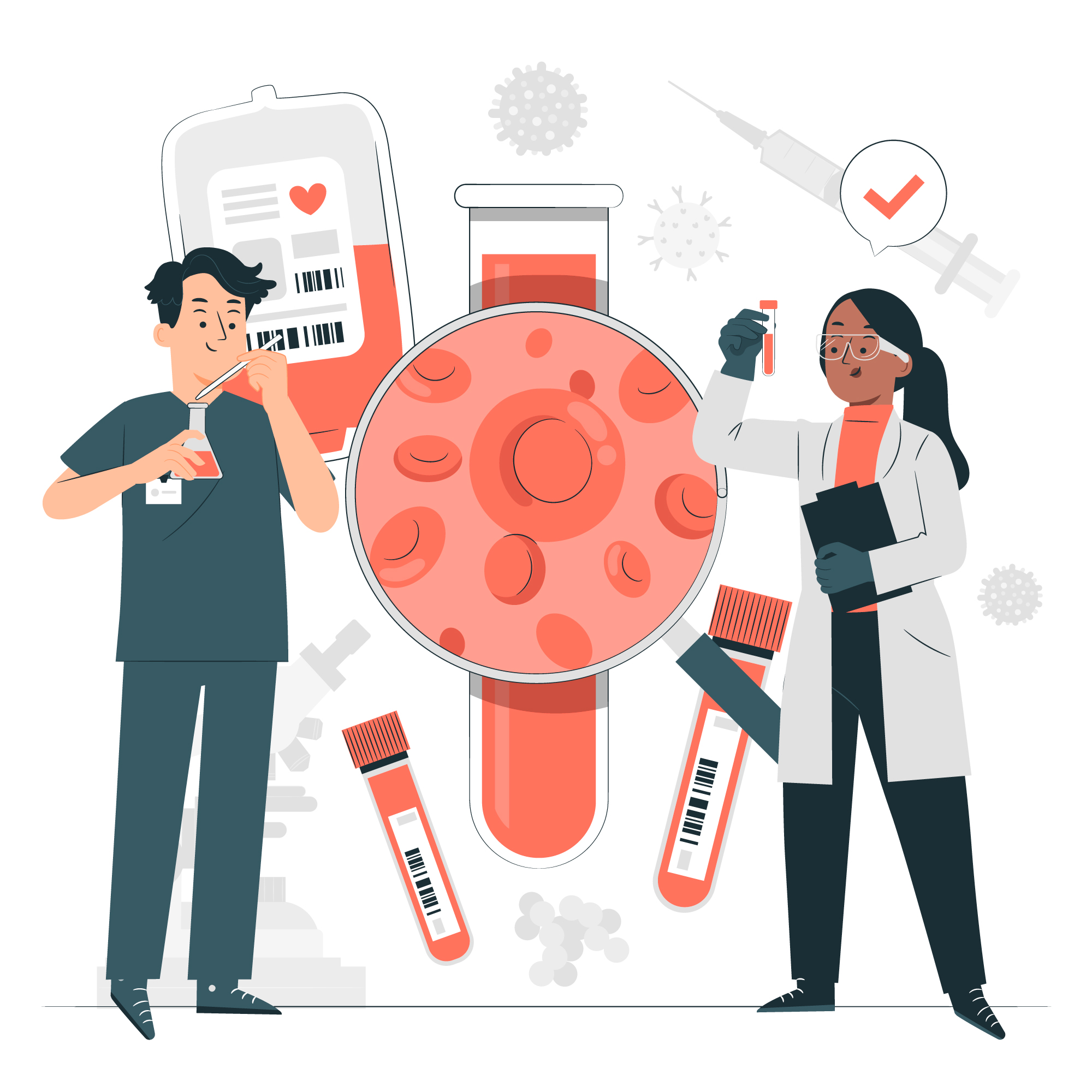The Power of a Simple Blood Drop
One small vial of blood can tell you more about your health than hours of guessing symptoms. That’s the magic of the CBC test — Complete Blood Count.
It is one of the most commonly prescribed tests in the world. Doctors use it to check overall health, detect hidden conditions, and guide treatments.
Yet, many people think it’s just about “counting blood cells.” In reality, it’s much more powerful than that.
In this blog, let’s decode the CBC test — what it measures, why it matters, how to prepare, and when you should definitely get it done.
What is a CBC Test?
A CBC test (Complete Blood Count) measures the levels and quality of different types of cells in your blood:
Red Blood Cells (RBC) – Carry oxygen from your lungs to the rest of the body.
Hemoglobin (Hb) – The protein in red blood cells that carries oxygen.
Hematocrit (HCT) – Measures the proportion of red blood cells in your blood.
White Blood Cells (WBC) – Defend your body against infections.
Platelets – Help in clotting and prevent excessive bleeding.
Each of these tells an important story about your health.
Why Do Doctors Recommend a CBC Test?
Doctors prescribe a CBC test for many reasons. Here are some key ones:
General Health Check – Routine health check-ups often include a CBC.
Detecting Anemia – Low hemoglobin levels signal anemia.
Identifying Infections – High WBC count means the body is fighting an infection.
Diagnosing Blood Disorders – Leukemia, clotting disorders, and bone marrow issues.
Monitoring Ongoing Treatments – For patients taking strong medications (like chemotherapy).
Parameters Measured in a CBC Test
Let’s break it down further. A CBC test report usually contains:
RBC Count – Normal range: 4.7–6.1 million/µL (men), 4.2–5.4 million/µL (women).
Low = Anemia, bleeding, bone marrow issues.
High = Dehydration, heart/lung disease.
Hemoglobin (Hb) – Normal: 13.8–17.2 g/dL (men), 12.1–15.1 g/dL (women).
Low = Anemia, nutritional deficiency.
High = Smoking, dehydration, lung disease.
Hematocrit (HCT) – Normal: 40–54% (men), 36–48% (women).
Shows ratio of red blood cells to plasma.
WBC Count – Normal: 4,000–11,000/µL.
Low = Immune suppression, viral infection.
High = Bacterial infection, inflammation.
Platelets – Normal: 150,000–450,000/µL.
Low = Risk of bleeding.
High = Risk of clotting.
Symptoms That May Lead to a CBC Test
Your doctor may recommend a CBC test if you experience:
Persistent fatigue or weakness
Frequent infections
Fever that doesn’t go away
Unexplained bruising or bleeding
Dizziness or shortness of breath
How to Prepare for a CBC Test
The best part?
CBC requires no special preparation.
You don’t need to fast.
Just show up at the lab, and a small blood sample is taken from your vein.
Understanding CBC Test Results – What They Mean for You
A CBC report may look confusing with lots of numbers, abbreviations, and reference ranges.
Here’s the simple guide:
If RBC, Hb, or HCT are low → Anemia.
If WBC is high → Infection or inflammation.
If WBC is very low → Weak immunity.
If Platelets are low → Bleeding risk.
If Platelets are high → Clotting risk.
Your doctor interprets these values along with symptoms before giving a diagnosis.
Why CBC is More Than Just a Blood Count
Here’s the beauty of the CBC test —
It doesn’t just show numbers. It acts like a health detective.
If you’re feeling constantly tired → CBC can reveal anemia.
If your child is falling sick often → CBC can detect low immunity.
If you’re on medication → CBC tracks side effects on your blood.
It’s like a health mirror that reflects your body’s internal condition.
Who Should Get a CBC Test?
Anyone going for an annual health check-up.
Patients with chronic illnesses (diabetes, kidney, or liver disease).
Kids with frequent infections.
Pregnant women (to monitor hemoglobin and overall health).
People on strong medication or chemotherapy.
CBC Test in Kalwa – Where to Get It
At Kaizen Diagnostic Centre, Kalwa, you can get:
Accurate CBC testing with fast reports.
Experienced pathologists who explain results clearly.
Affordable pricing for families.
Professional phlebotomists (blood collection experts) for painless sampling.
Don’t Ignore the Basics
Sometimes, the simplest test holds the biggest answers.
The CBC test is affordable, quick, and life-saving. It can detect hidden problems before they become serious.
So, don’t wait until you feel “too weak” or “too tired.” Book your CBC test today and give your body the clarity it deserves.
Your health is your real wealth — and a small blood test can protect it.



Pingback: Monsoon Diseases – Blood Tests That Can Save You from Delay
Pingback: Annual Health Checkup – Pathology Tests You Should Never
Pingback: Pathology Lab Tests for Anemia – Iron, Hemoglobin, and